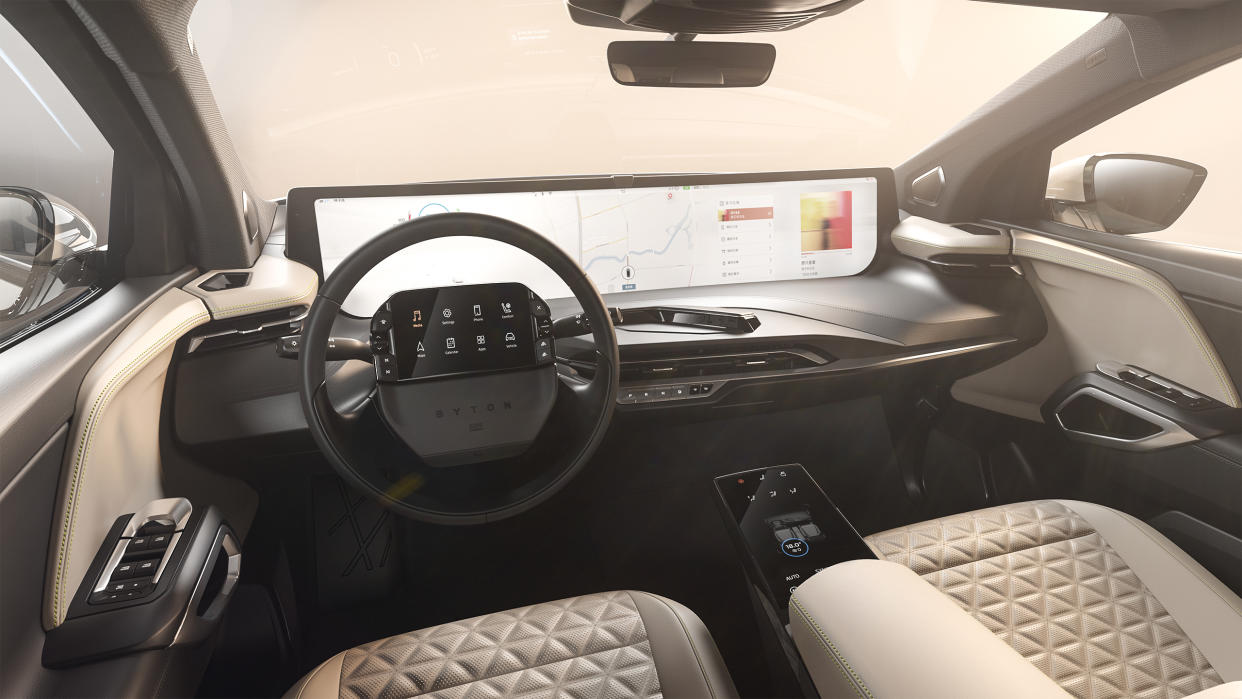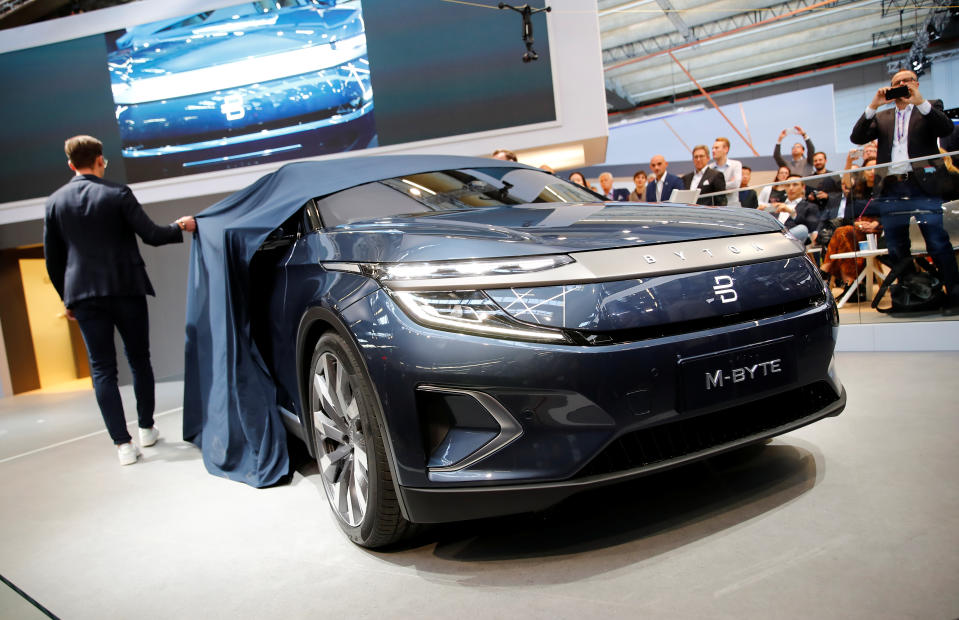Chinese startup Byton built its first car to be a 'smartphone on wheels'

Just three Chinese carmakers set out their stalls at Frankfurt motor show this week, among them three-year-old Byton, which brought the production model of its first SUV.
The battery-electric M-Byte has been designed on the idea of being a smartphone vehicle — the company name is a mash-up of “bytes on wheels” — and its most striking feature is a huge curved dashboard display, stretching 48 inches from one side of the cockpit to the other.
Daniel Kirchert, co-founder and CEO of the Chinese car startup said being a smart device on wheels was his founding vision, and that Byton is convinced this is what the next generation of drivers want.
“We can see it already today, if you look out in traffic, and people in traffic jams, everyone is using their smartphones, no one is using the built-in infotainment functions in their cars because they are so much below what you get on your smart device,” Kirchert told Yahoo Finance UK.
READ MORE: Tesla S owners number high among new conquests for the Porsche Taycan
In the next five to 10 years, transformations like autonomous driving will change our relationship with the car entirely. “What are you going to do with your time in the car?” Kirchert said. “That’s why we had this idea to create a digital living room.”
He sees a paradigm shift happening away from the importance of horsepower, control, and handling to more data power in the car, and the car as a digital platform. It is Kichert’s assertion that the younger generation, born from 1990 onwards, care way more about the inside experience than range and performance.
Nanjing-based Byton was founded in 2016 — initially as a joint venture called Future Mobility backed by Tencent, Foxconn, and Harmony Auto — by Kirchert and Bavarian-born Carsten Breitfeld, who recently left to join rival Faraday Future. It has a research and development base in Germany, where the car was designed, and a tech centre in Silicon Valley.
Priced at $45,000 (£36,511) entry level, Kirchert says their electric SUV should compete mainly with the three German premium brands — Mercedes Benz, BMW and Volkswagen.
“I believe if you put it next to German premium brands, it won’t lose, in terms of the craftsmanship, the quality, and the good-looking design,” he said.

The startup is in the process of closing its C-round of fundraising for an estimated $500m, and has raised some $820m by equity. It also received a “significant amount” in “local government support, subsidies and loans, and this has helped us to build a factory.”
The factory, which cost $1.5bn to build, is expected to produce 300,000 units per year.
The electric SUV, with a 250-mile range and 71 kWh battery, will go into production at the end of this year. They plan to start deliveries in China in the middle of 2020, and will start taking pre-orders in Europe and North America next year for 2021 deliveries.
READ MORE: Lamborghini unveils Sian as a 'step into hybrid hypercar future'
The interior definitely feels like a place to hang out, and would make sense if you are sitting in gridlock in Beijing, but could be distracting or even dangerous on trickier roads — or the German autobahn.
Kirchert, however, says: “The way that we designed it keeps your eyes in a straight line with the touch pad and the screen” he said. “You don’t need to put your eyes down to some central control panel, the important things are happening in your field of vision.”
That a car can go from idea to production model in three years says a lot about China right now. “Our case of course is a bit special because we bring a lot of know-how from the established premium industry.” Kirchert and his former co-founder are both ex-BMW guys.
READ MORE: Volkswagen rebrands and wheels out its new mass-market car
“I think the car industry in general, after 30 years of being in the joint venture trap, finally started to evolve quickly and more companies are dramatically reaching global standards,” said Kirchert.
He attributes China’s speed and energy at making things happen to some key factors.
“People are willing to work very hard, they are willing to leave their big corporate jobs and go out and do startups, so you have this mindset, this dynamic, this spirit,” he said. “And of course you have a capital market that is riding along with this and you have the government strongly supporting this direction.”

